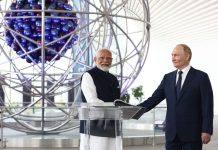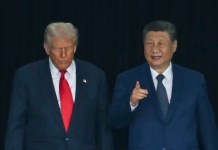Coronavirus (COVID-19) vaccine developed by Russia has been all over the media. With more than 13 million cases, 575,000 deaths globally, the Russian coronavirus vaccine has been welcomed with open arms.
However, experts at EurAsian Times present a fact-check of the claim and explain why the Russian COVID vaccine does not signal the end of the coronavirus.
News about the coronavirus vaccine being developed by Russia went viral on social media yesterday. Netizens globally welcomed the move and assumed that the world would return to the way it was before the pandemic. However, this will not be anytime soon.
What most media outlets failed to mention in their reports was that only phase-I of the clinical trials had been completed whereas phase-II and phase-III were still pending. Even after the successful completion of all three phases, it takes 12-18 months for the Russian COVID-19 vaccine to be available to the public.
A report by the TASS news agency of Russia on July 10 said the phase I clinical trials would end on July 15, while the second phase would begin on July 13. Only after phase-II is successfully completed, phase-III will be initiated.
Vaccination and immunology experts explain that in phase-I ‘safety and tolerability’ of a vaccine is tested, on a small group of volunteers. Since Russian volunteers from phase-I did not experience any side effects or reported any complaints, the vaccine development process has moved to phase-II.
In Phase-II efficiency and immunogenicity (generation of the immune the response)’ is tested. It is in this state that researchers try to see whether the vaccine is triggering the desired immune response in humans, and what could be the suitable doses to generate this response.
This phase began yesterday after volunteers were administered by the vaccine. This step usually takes months to complete and the success is not guaranteed. The success can only be ascertained after the completion of the trials.
In Phase-III a large number of volunteers, usually numbering several thousand, are enrolled in which researchers try to ascertain whether the immune response triggered by the vaccine is able to fight the virus in real-life situations. This process also takes several months, thus taking 12-18 months in total to prepare a vaccine.
While Russia has reportedly claimed that it would launch the vaccine by mid-August, only after two-phases, the World Health Organization’s protocols say that a vaccine has to go through three phases of studies before being approved for large-scale production.
In fact, no vaccine is approved for large scale production without undergoing the third phase of testing. There is absolutely no guarantee that a vaccine would effective only two phases and it would be ‘naive’ to believe that the end of the pandemic is here.
Race to Develop the Vaccine
The coronavirus vaccine in Russia is being developed by the Gamalei National Research Centre for Epidemiology and Microbiology, in partnership with the Russian Defence Ministry.
The first stage of the vaccine trial at the Sechenov First Moscow State Medical University was launched on June 18 in a group of 18 volunteers who were vaccinated against the virus. The second group involving 20 participants were administered the vaccine on June 23.
There are over 150 candidate vaccines for coronavirus being developed all over the world. Nearly half of these are still in pre-clinical stages, meaning they are being tried on animals or are still in the early stages of development. About 15 vaccines are in phase-I trials and about ten in phase-II trials. Three vaccines are in phase-III trials.
India is also involved in the race to develop a vaccine for the COVID-19 virus. All India Institute of Medical Studies (AIIMS) Patna will begin human trials for the ‘Covaxine’ shortly. ‘Covaxine’ will be developed by Bharat Biotech in collaboration with the National Institute of Virology (NIV).
Medical experts say that even after the completion of Phase-III, the vaccine is unlikely to be available for all at one go. Initially, it is expected to be made available only to people who are at higher risk of getting the infection, like healthcare workers. Just like it is the case with other vaccines, a universal immunisation against Coronavirus can take several years.




